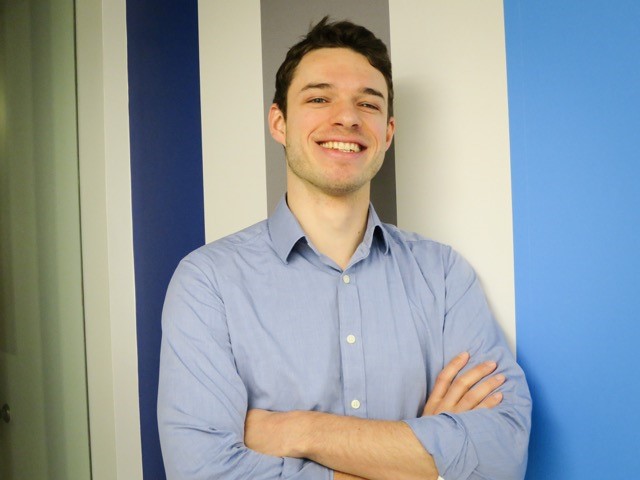
A Q&A with IDSS PhD student and Siebel Scholar Marco Miotti
IDSS doctoral candidate Marco Miotti received a prestigious Siebel Foundation Scholarship in October 2017. This award supports outstanding PhD candidates in their final year of study, and is given in recognition of their academic achievements, leadership, and commitment to addressing global challenges. Marco is one of sixteen MIT graduate students in the 2018 cohort of Siebel Scholars, selected from the world’s top graduate programs in bioengineering, business, computer science, and energy science.
Marco sat with us recently to share some reflections on his work, his experiences at IDSS, and the future of research.
What are some of the unique or important aspects of your work?
My work focuses on evaluating vehicle technologies and other options for reducing greenhouse gas emissions in transportation. I think what’s impactful about it is that it explicitly takes the perspective of consumers, and integrates that perspective with the central planner’s—a perspective that we often see in current literature. Ultimately, consumers are key decision makers in deciding what the future car fleet in the U.S. will look like, and how those cars are going to be driven.
This particular focus has allowed us to create tools like carboncounter to connect with consumers directly. We’ve heard back from a lot of people who have enjoyed our tool, and who have used it to inform their car purchasing decision. This approach, translating scientific findings directly into interactive tools that complement more traditional scientific publishing methods, is something that we’re going to see more and more often, I believe.
What sort of knowledge and disciplines does your work bring together?
Reducing the environmental impacts of personal transportation in the U.S. requires us to have a good understanding of how things work on a small scale, like what’s happening inside of a vehicle, all the way up to the systems perspective at the societal level. My work involves using engineering knowledge to understand and model energy consumption of different vehicle technologies, statistics to identify technological development and travel demand patterns, and economic principles to understand consumer choice and market dynamics. I’m really enjoying the combination of methods and ideas from these different fields. IDSS is an ideal place for doing this kind of research.
How did you get started on this path? What inspires the work that you do?
I’ve always been drawn to numbers and statistics. For my undergraduate degree, I majored in environmental science, focusing on statistical ecology. But I wanted to work more in the energy technology space. Therefore, I moved towards engineering, while maintaining the overall approach [of looking at problems from a systems perspective].
I also really enjoy that data visualization is a key aspect of the work that I do. I’ve always enjoyed graphic design, and I worked as a web developer part-time during college. When my colleague, Geoffrey Supran [a postdoc at IDSS and Harvard University], mentioned the idea of turning one of our figures into an interactive web version, I was immediately on board, and started to try out approaches and create proof-of-concepts during some late summer evenings. This project gave me an opportunity to combine my hobby and my research in a way that I had not anticipated. Once we released the first version of carboncounter, it was incredibly exciting to see how much people liked our tool, and how much of a reach we were able to have with it.
What do you like about the MIT community?
I have been here for a little more than 3 years now, and one of the things I’ve come to appreciate the most is the supportive spirit among the students, both in my lab and in my PhD program. The frequent conversations and lunch seminars that I’ve had with my peers have helped me to expand my horizon, to learn from others, to push my work further.
Marco is a member of the Trancik Lab. Led by IDSS Professor Jessika Trancik, the group builds data-driven models to assess the economic and environmental impacts of energy technologies in order to accelerate clean energy development.



